Depression Therapy
We offer Depression Treatment in Cincinnati and Indianapolis.
We Can Help You With Depression
We all experience sadness, which is a commonly known aspect of depression. In addition to sadness, depressive disorders can include feelings of emptiness, low self-worth, irritable mood, somatic changes (e.g., problems with appetite, energy, and sleep disturbances), and cognitive changes (e.g., difficulty with memory, concentration, and problem solving). When these features are persistent and affect your capacity to function, you should be evaluated for a depressive disorder. The duration, timing, and cause of the symptoms are all important factors in the diagnosis of depression. This guide explains depressive disorders and the treatments that can help you thrive.
Depressive Disorders
Major Depressive
Disorder
- Symptom episodes that last over a 2-week period (usually much longer)
- Symptoms must include depressed mood and/or loss of interest or pleasure
- Many experience recurrent episodes
Persistent Depressive Disorder
- Depressed mood most of the day, for more days than not, for at least 2 years (adults) or 1 year (children)
- May include intermittent major depressive episodes
Premenstrual Dysphoric Disorder
- Symptoms occur in the week before menses, and improve around the onset of menses
- Symptoms can include mood swings, irritability, feeling out of control, anxious, hopeless, fatigue, etc.
Disruptive Mood Dysregulation Disorder
- Age of onset is before 10 years
- Severe recurrent temper outbursts that are out of proportion in intensity to the situation
Depression with Anxious Distress
Some people experience anxious distress with depression, including problems with worry, feeling keyed up, restlessness, and fear that something bad will happen.
Other Specified Depressive Disorder
Can include recurrent brief depression, a short duration depressive episode (4-13 days), or depressive episode with fewer symptoms
Effective Treatment Plans for Depression
Cognitive Behavioral Therapy
- Identify and challenge unhelpful thinking patterns and
negative core beliefs - Learn cognitive and behavioral skills to develop more
accurate and helpful beliefs and eventually become your
own therapist
Acceptance and Mindfulness-Based Cognitive Therapy
- Learn to cultivate mindful awareness of depressive modes
of thinking and feeling while developing a new (less
reactive) relationship with these feelings - Learn to attend to inner experiences with patience,
kindness, curiosity, and empathy
Behavioral Activation
- Identify the patterns of withdrawal and avoidance
exacerbating depressed mood - Learn effective ways to reengage with life through pleasant
experiences, social activity, and experiences of mastery
Acceptance and Commitment Therapy
- Learn to let go of the struggle against unwanted thoughts,
emotions, and physical sensations to embrace acceptance - Learn to use your values to make changes and persist in
difficult circumstances
Interpersonal Psychotherapy
- Identify the stressors and interpersonal dynamics that
contribute to your distress - Learn new ways to address stressful life events and build
social support
Take the Next Step with Depression Help

We want to help you create an individualized roadmap (a ThriveMap!) to get CLEAR DIRECTION on how you can achieve your goals and overcome your challenges.
1
Understand the Problem
2
Choose Treatment Targets
3
Create an
Action Plan
Frequently Asked Questions About Depression Therapy
What is it like to work with our depression therapists in the Indianapolis and Cincinnati areas?
We believe the connection with your therapist and having clear guidance about the treatment and therapeutic process are critical for a great therapy experience, that’s why we promise our clients Remarkable Connection and Clear Direction. Your unique needs and expectations matter to us as we work together to help you accomplish your goals. Here’s a snapshot of the ThrivePointe experience.

1. Build a Strong Therapeutic Relationship
Team up with a therapist who strives to deeply understand your experience and expertly guide you through the process of making changes.

2. Understand the Problem
Develop a clear picture of your problem, including your personal history, symptoms, triggers, and the ways your life is impacted.

3. Create an Action Plan
Using evidence-based approaches, design an individualized plan to achieve your goals.

4. Implement New Skills & Solutions
Get the right balance of support and challenge to make life and relationship changes.

5. Track Your Progress To Do What Works
Make sure therapy is helping by monitoring improvements and refining your action plan.

6. Achieve Your Goals
Experience the Satisfaction of working hard to see positive changes and growth in your life!
Many factors contribute to depression, so Kris gets to know you and helps you uncover significant experiences, beliefs, behaviors, and relational dynamics contributing to your depression. Unhelpful beliefs may have you hooked in a negative view of yourself or the world. Painful life experiences may contribute to overwhelming sadness and negative thoughts about the past, present, or future. Heavy feelings of sadness, numbness, or fatigue may have slowed you down and contributed to patterns that exacerbate those feelings instead of moving you through them. There are several effective treatments for depression, so Kris will work with you to flexibly integrate the interventions and style of therapy that is most helpful and comfortable for you. When you’re depressed, you are often your own worst critic and skeptical that something can help (or that you’ll be capable of making changes!). That’s why the compassion, patience, and guidance of a therapist can help you stick with it (or know when to pivot!) so you can move forward with hope and experience more joy, optimism, adventure, and connection in your life.
What does depression therapy look like?
Behavioral Activation for depression (Addis, Martell, 2004) can help you get unstuck from patterns that keep you in a vicious cycle of depression.
- Learn how low mood, low energy prompt avoidance of enjoyable and meaningful activities, and social isolation.
- Use daily activity and mood logs to understand the sources of your depression.
- Focus in on your life goals and values, shifting attention from your internal state to what is most important to you.
- Translate your values into activities to pursue and learn how to use activity scheduling to increase your capacity to engage in these activities.
- Get support to problem solve around barriers to engaging in “anti-depressant” behaviors.
- Take steps toward social engagement and support.
- Celebrate your progress!
Want to Learn More About Depression Therapy
in Ohio or Indiana?
We want to make finding depression treatment in Cincinnati and Indianapolis easy.
To get started with an depression counselor, just follow these three steps:
- Find a therapist on our Team page.
- Call 833-914-4688 to make an appointment.
- Start making progress on your goals!
More ThrivePointe Counseling Services Near Cincinnati and Indianapolis
As a practice, we value treating the whole family’s needs. So, at our various ThrivePointe locations in Indianapolis, Greenwood, Blue Ash and Liberty Township, we can serve you. We provide adult counseling, couples counseling, child counseling and play therapy, teen counseling, family counseling and Christian counseling. Our team cares about you and wants to be a part of your thriving life. Learn more and call us today!

